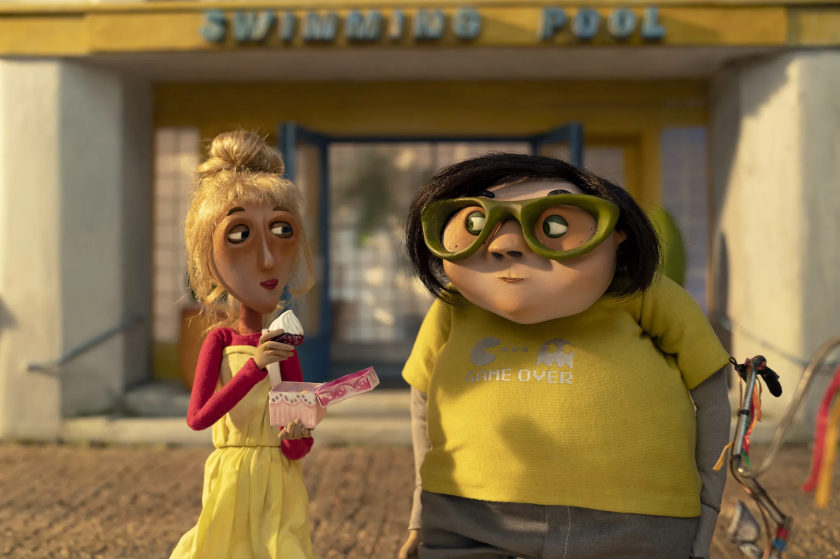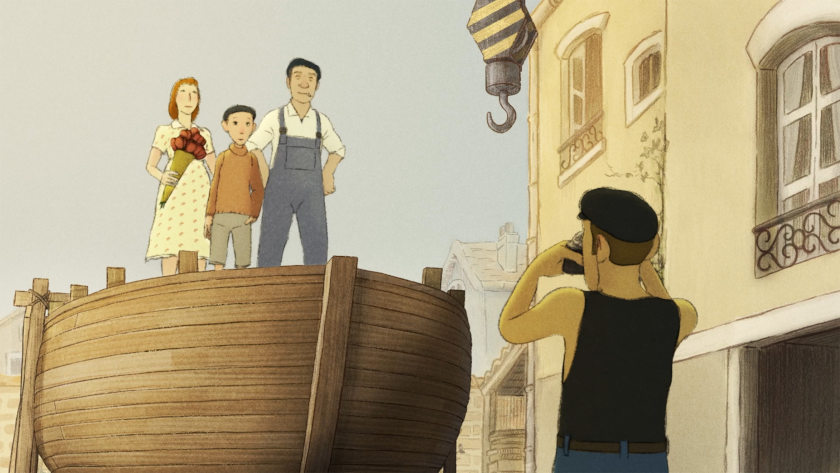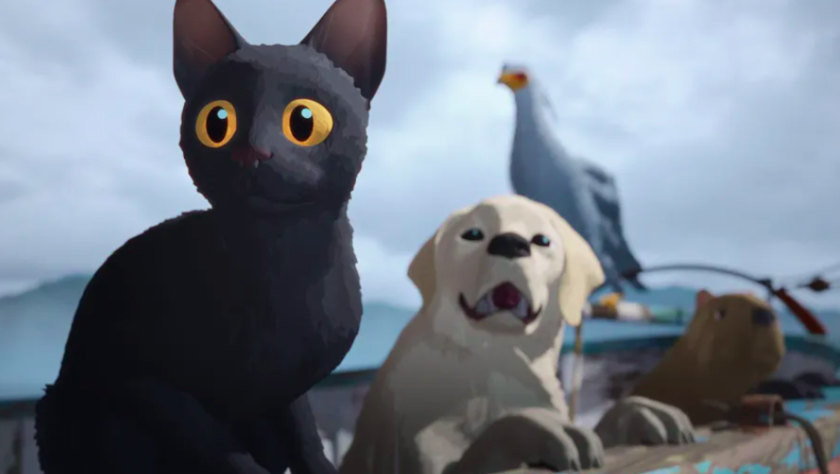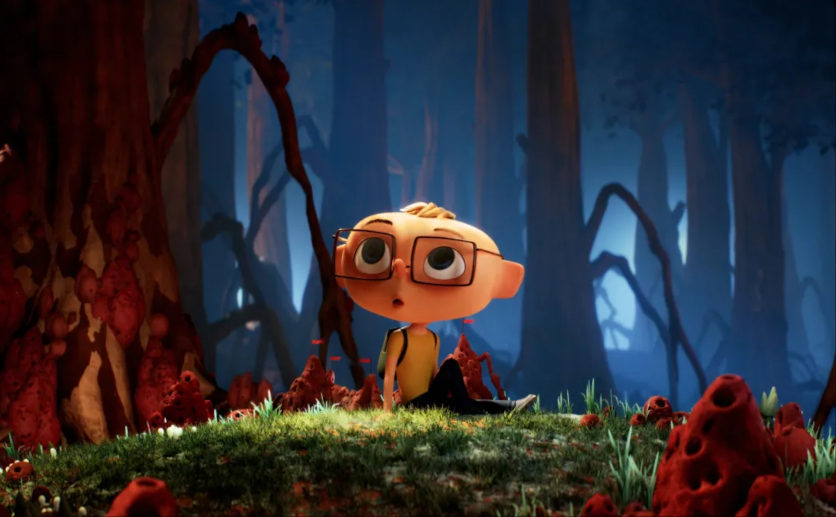'White Plastic Sky' Review: It's The End of the World (And Our Relationship)
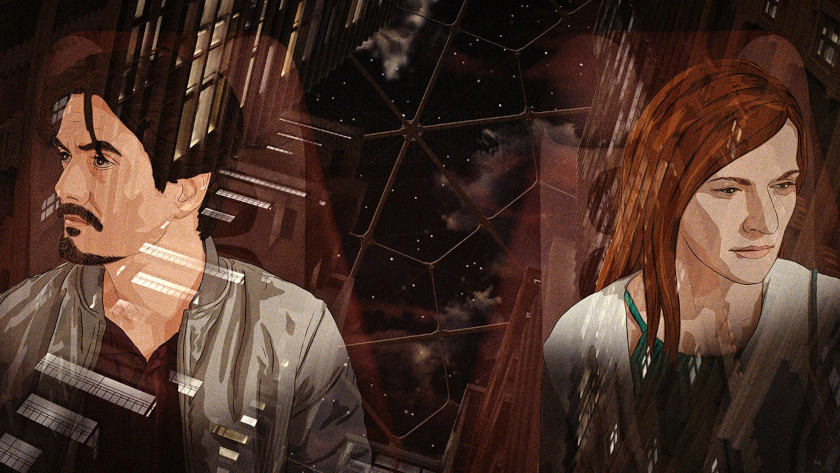
The word 'dystopian' in recent days and in Hungarian days has been heard as much as the word 'good morning'. Morning is never a concept in the extravagantly, consistently dystopian animation feature 'White Plastic Sky' by the directing duo of Tibor Bánóczki and Sarolta Szabó (already known to the animation world for their 'The Conquerants' and 'Leftover' animation shorts, multiply acclaimed in Sundance, Clermont-Ferrand among other festivals).
The leap from short to the rotoscope feature with the post-apocalyptic 'White Plastic Sky' proves both a success and a resounding answer to all animation purists, who still complain that rotoscope is not animation art (to be fair, the similarly rotoscoped 'Loving Vincent' seems overblown in that respect). Yet animation doesn't have to be showoffish to be distinctive. And with the directing duo both in the artistic direction and production design helms, the film explores a post-apocalyptic world of its own as a personal drama -far away from the graphic (but still pertinent) visual obscenities of 'Birdboy, The Forgotten Children', another film taking place in the bleak future.
Moving deeper into its plot, we land into the 2123 hazy Budapest, a combination of boxy buildings, protective domes, tree holograms -and amongst all, people ready to be sacrificed 'for the greatest good'. We learn that during to a lack of natural resources, humans themselves need to provide the soil (via seed implantation) that will turn them into trees. Governmental regulation leads to a 'Ballad of Narayama' agreement; after they turn 50, all people will turn into food on the Plantation. Yet, still, some residents go for a Volunteer Implantation. This is the case for 32-year-old Nora (Zsófia Szamosi), who, after the death of her son, decides to get recycled -without the agreement of her 28-year-old husband and psychiatrist Stefan (Tamás Keresztes).
This will trigger the classical 'hero's journey', with the more determined Stefan trying to reverse the procedure. He only has a few hours left after the seed implantation in Nora's body- and, with a few allies, he will try to enter the highly secured 'Plantation' lab, in which highly technical operations take place.
Yet, 'White Plastic Sky' won't follow the noir version of most-apocalyptic films, and its cat-and-mouse plot is very elemental -some gunshots bring suspense, but the ambiance of alienation and despair almost overshadows all the rest. With a visual world that constantly brings to mind works like Tarkovsky's 'Solaris', it insistently asks for a higher meaning and understanding -instead of a way out. A road movie with two subjects mostly in need of reconnecting themselves rather than taking the right decisions, the film is a document of a relationship in disintegration. And the whole process of 'recycling', shown in its most intricate details, only makes the end of that relationship almost unbearable.
Szabo & Bánóczki work mostly like cartographers, presenting a variously colored map of barren lands (and 3D buildings) and some sort of earthy normalcy (in the film's last third), and their impeccable production design makes the whole thing impossible to be lived -yet somehow fascinating. This comes out of the rotoscoped character design; we do care for the beautiful young characters and their (short or long) future; their shadows are pertinent and they are almost bathed in their environment. A more graphic/grotesque solution here would have made the whole film almost a travesty.
The third act (Tatra Mountains) attempts to solve a lot of mysteries, and new characters (Professor Paulik - Géza D Hegedűs) appear with their own subplots; yet the accumulation of details somehow seems to be either too forced or too timid, especially in its treatment of the philosophical -cognitive relationship between plants and people. It is also interesting for a Hungarian feature (carrying over the undertones of its president's controversial politics) that government surveillance seems to be completely absent, and no external force is instituted in the film. It seems the citizens have already absorbed the 'greater good' individual sacrifice method too easily.
Equally bleak and visually enchanting, 'White Plastic Sky' is instrumental in presenting a couple in crisis -mirrored in an overwhelming global malaise. What it misses from its ethical underlinings it substitutes with a finely-tuned sense of exploring step-by-step a reality no longer livable.
Vassilis Kroustallis
White Plastic Sky premiered at the 2023 Berlinale (Encounters). It screens in competition at the Animafest Zagreb and Annecy Festival 2023.




